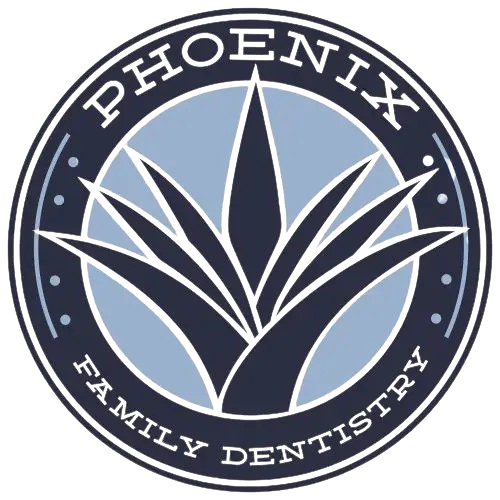Replace Missing Teeth with Dental Bridges
Dental bridges are a common and effective solution for replacing missing teeth. A dental bridge by our dentist in 85053 consists of one or more artificial teeth (pontics) that are supported by dental crowns or implants and used to bridge the gap created by missing teeth. Here's how dental bridges work and what you can expect from the treatment process:
How do dental bridges work?
As the name suggests, a dental bridge uses an artificial tooth (called a "pontic") to bridge a gap in a patient's teeth. If pontics are not implanted into the jawbone, they need to connect to existing teeth.
Dental bridges connected to natural teeth
A traditional dental bridge connects the pontic to two dental crowns on either side of the gap. In this procedure, each tooth on either side of the gap is fitted with a dental crown, and the pontic is cemented to each crown. A simpler variant of the traditional bridge is the cantilever bridge, which connects a pontic to a single dental crown.
In some cases, a patient may prefer not to have the teeth on either side of a gap fitted with crowns. For these patients, a Maryland bridge may be a solution. A Maryland bridge also uses a pontic, but it is cemented to the natural teeth on either side of a dental gap. There is no need to fit these teeth with dental crowns, which simplifies the procedure. Call us to learn more.
Implant-supported bridges
For patients missing multiple teeth in a row, it is impossible to connect a pontic to two natural teeth. In these cases, implant-supported bridges may be advisable. For example, if a patient is missing three teeth in a row, the dental provider may place two implants and cement a pontic in the middle
Getting implant-supported bridges tends to take longer than with other bridge types. Generally, an initial surgery places the implants, and the bridge is only placed after the implants have healed and successfully integrated with the jawbone. While the procedure takes more time, implant-supported bridges are usually considered to be the most stable and long-lasting bridge option available.
Is a dental bridge or an implant a better solution?
While dental bridges can be an economical way to replace one or more missing teeth, they do have one important limitation: They usually need to be replaced after between five and 15 years. In younger patients, bridges may not be the first choice for tooth replacement. Some dental professionals may choose to go with a dental implant, which is a more permanent solution.
For patients who are unsure if they need a dental bridge or an implant, it is a good idea to speak with a dental professional. Dentists in Phoenix, AZ can talk through the benefits and drawbacks of each option and often will make a recommendation based on the individual patient's circumstances.
Benefits of dental bridges include:
- Restoring the ability to chew and speak properly.
- Preventing the remaining teeth from shifting out of position.
- Maintaining facial shape and preventing the appearance of sunken cheeks.
- Restoring the appearance of your smile and boosting self-confidence.
Overall, dental bridges are a reliable and long-lasting solution for replacing missing teeth and restoring the function and aesthetics of your smile. If you're considering getting a dental bridge, consult with your dentist to discuss your options and determine the best treatment plan for your needs.
Conclusion
Missing teeth can cause problems in everyday life, but patients can consult a dental professional for guidance on their replacement. Thanks to advances in dental technology, dental bridge replacements often blend in with the rest of a patient's new smile.
Request an appointment or call Phoenix Family Dentistry at 602-547-9007 for an appointment in our Phoenix office.









0 comments